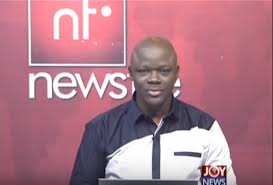A favourite English jurist, Lord Denning cautions that “silence is not an option when things are ill done.” It shouldn’t be difficult to tell Speaker of Parliament that it was a serious gaffe threatening to withdraw accreditation if journalists did not obey his directives on how they should conduct their profession in the house.
It is equally easy to tell managers of GETFund that they do not have the power to grant any form of scholarship, and I do this next week. I shall point to the plain law and the expressio unius est exclusio alterius rule manifest in it, prohibiting GETFund from dealing with scholarships.
The Speaker and leaders of the house who supported him are terribly wrong! Journalists do not go to the legislative assembly at his pleasure or as his “guests” as he told them and the world last week. Those helping him project this dangerous unconstitutionality must stop, or get GETFund scholarship for just a minute’s lecture at GJA or by phone call to Prof. Audrey Gadzekpo, even though one of her first-year students can handle this job.
Citizens, by articles 21 and 162, have both constitutional and fundamental human rights to information and to know through the media what their elected representatives do, and what goes on in that house. Now, to say fundamental human right is to say birthright. The Constitution only guarantees these rights, it does not give them.
The preamble of the Constitution talks about “natural” and “inalienable rights” – that’s exactly what they are! Again, the preamble notes and it is re-emphasised in article 1 that “[sovereignty … resides in the people’’ and that it is in their “name and for [their] welfare the powers of Government are to be exercised”.
They elect the MPs, give them offices, homes, pay them, buy them cars, fuel them and those who care to, drive to that place to work. Then article 162 while prohibiting censorship and any attempt to direct editorial discretion, mandates, in a compelling fashion, that the media must hold them (the MPs and Parliament) responsible and accountable to the people.
First, never forget the people put you MPs in parliament. The way to monitor how you exercise the power they have given you is through the media, without which, a free media, there can be no democracy.Mr. Speaker, let them make their own editorial decisions covering opposition MPs. You, Professor of political science, know far better than I do, that there is no meaning to this democracy without the opposition.
Some of your MPs don’t go to that house and that’s why it has had difficulty raising the quorum of only 92 of the 275 members to conduct business. Speaker after Speaker has wept and yelled without results. Yes, even budget debates have been postponed because of this. June 12, 2015, only 83 MPs were in the house. In 2017, 27 MP-ministers and 21 MP-deputy ministers absented themselves more than 15 times during some 80 sittings, and they do so without permission. It is scandalous to find that opposition MPs are equally guilty.
The Constitution in article 97 and Order 16 of the Standing Orders of Parliament prohibit this conduct. No Speaker has ever declared vacant the seat of an offending MP despite being empowered to, and to discipline through the Privileges Committee for sanctions like a reprimand, admonition, suspension and suspension of salary.
Prof. Kwaku Asare sued over this conduct and nothing has happened. Mr Speaker, you have power over MPs, not journalists. If MPs are arranging media interviews while work is going on in the chamber and you don’t like that, you know what to do. The last thing we should ever encourage is any act that chips away from the independence of a free vibrant media.
In 2011, the Council of Europe's Commissioner for Human Rights reminded us that “[t]oo many nations around the world know that, like democracy, freedom of the media and freedom of speech do not come naturally, and cannot be taken for granted. They must be constantly justified, reaffirmed and strengthened.”
In The Law And The Media In Ghana, Prof. Henrietta Mensah-Bonsu finds it critical to stress that “[t]he need to uphold the freedom of speech and expression is considered fundamental to democratic governance and the operations of a democratic society. Such protection ensures the nurturing and growth of a market in ideas which guarantees the free flow of information from the governors to the governed and vice versa.”
Samson Lardy ANYENINI
March 7, 2020
Latest Stories
-
‘It is false’- PMMC refutes claims of politicians smuggling gold from Ghana
14 minutes -
2 million NPP supporters did not turn up to vote – Kabiru Mahama
16 minutes -
IPR Ghana congratulates citizens for peaceful election, calls for unity
54 minutes -
Bawumia’s 8 minutes elite ball that zapped the energy of trigger happy politicians
2 hours -
It will be a betrayal if National Cathedral saga does not feature in ORAL’s work – Ablakwa
2 hours -
‘It’s unfortunate we had to protect the public purse from Akufo-Addo’ – Ablakwa on ORAL Team’s mission
3 hours -
Congo lawyers say Apple’s supply chain statement must be verified
3 hours -
Stampede in southwestern Nigerian city causes multiple deaths
3 hours -
Tens of thousands without water in Mayotte as curfew brought in
4 hours -
ORAL: We won’t witch-hunt, we’ll focus on transparency, not revenge – Ablakwa
4 hours -
Attempted robbery: Accused claims he carried cutlass for protection
4 hours -
Excavator operator jailed for stealing
5 hours -
African fans age-shame me for putting on some outfits – Tiwa Savage
5 hours -
Tiwa Savage criticised by female fans for stance on cheating in relationships
5 hours -
Bank of England expected to hold interest rates
5 hours

